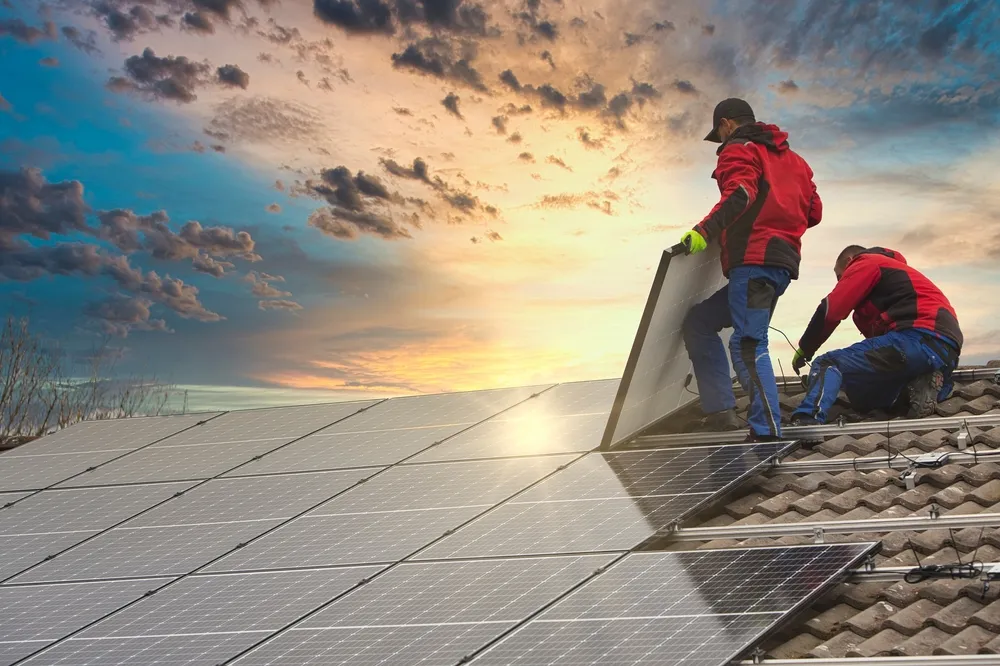Switching to solar power is becoming a popular choice for homeowners worldwide. Residential solar solutions not only reduce energy bills but also contribute to environmental sustainability. This comprehensive guide will help you understand the key aspects of residential solar solutions, ensuring you make an informed decision for your home.
Why Choose Residential Solar Solutions for Your Home?
Residential solar solutions offer numerous advantages for homeowners. Here are some of the primary benefits:
1. Significant Energy Savings
One of the most appealing aspects of residential solar solutions is the potential to lower electricity bills. By harnessing sunlight, homeowners can generate clean energy and reduce dependence on expensive grid electricity.
2. Increased Property Value
Buyers are willing to pay more for properties with pre-installed solar solutions due to the promise of long-term savings.
3. Environmental Impact
Switching to solar energy helps reduce greenhouse gas emissions, contributing to a healthier planet. Solar solutions enable households to lower their carbon footprint significantly.
How Do Residential Solar Solutions Work?
Residential solar systems use photovoltaic (PV) panels to capture sunlight and convert it into electricity. Here’s a simplified breakdown:
1. Solar Panels
These panels absorb sunlight and transform it into direct current (DC) electricity. The efficiency of this process depends on the quality and type of solar panels installed.
2. Inverter
The inverter plays a crucial role in converting DC electricity into alternating current (AC), which powers home appliances.
3. Battery Storage (Optional)
Some residential solar solutions include battery systems that store excess energy for later use. This is particularly useful during power outages or at night.
4. Net Metering
With net metering, homeowners can send unused solar power back to the grid and earn credits. This system ensures optimal energy usage and savings.
Choosing the Right Residential Solar Solutions
Selecting the ideal solar system for your home depends on several factors. Consider the following tips:
1. Assess Your Energy Needs
Analyze your monthly electricity consumption. This will help you determine the size and capacity of the solar system required.
2. Understand Different Types of Solar Panels
Research various solar panel types, such as monocrystalline, polycrystalline, and thin-film panels. Monocrystalline panels are highly efficient, while polycrystalline panels are more affordable.
3. Evaluate Roof Suitability
Your roof’s orientation, angle, and available space play a critical role in solar panel installation.
4. Compare Installation Companies
Choose a reputable installer with proven experience in residential solar solutions. Check customer reviews and warranties offered.
Cost Breakdown of Residential Solar Solutions
Understanding the costs involved is essential before investing in a solar system. Here’s what you need to consider:
1. Upfront Costs
This includes the price of solar panels, inverters, mounting equipment, and installation charges. Many companies offer financing options to ease the initial investment.
2. Maintenance Costs
Solar systems require minimal maintenance. Cleaning the panels periodically and ensuring the inverter works efficiently are the main tasks.
3. Government Incentives
Many countries offer subsidies, tax credits, or rebates to encourage homeowners to install residential solar solutions. Research available incentives in your region.
Maximizing Efficiency in Residential Solar Solutions
To ensure your solar system operates at its peak efficiency, follow these best practices:
1. Regular Maintenance
Keep your panels clean and free from debris. Dust, leaves, and dirt can reduce energy output.
2. Monitor Performance
Use monitoring systems to track the energy generated and consumed. This helps identify any issues early.
3. Upgrade When Necessary
If your energy needs increase, consider upgrading your system. Adding more panels or installing a higher-capacity inverter can enhance performance.
The Future of Residential Solar Solutions
The residential solar market is rapidly evolving with advancements in technology. Here’s what to expect:
1. Smart Solar Systems
Modern solar systems are integrating with smart home technologies. Homeowners can monitor and control energy usage through apps.
2. Improved Battery Storage
Advancements in battery technology are making energy storage more affordable and efficient. This will further enhance the reliability of residential solar solutions.
3. Innovative Solar Panel Designs
Thin-film and bifacial panels are paving the way for more versatile installations. These designs offer greater efficiency and aesthetic appeal.
Looking to embrace a sustainable future for your home? DSG Energy is at the forefront of transforming energy solutions in Pakistan. Specializing in advanced grid-tied solar systems, the company empowers homeowners with reliable and efficient residential solar solutions. By promoting the use of renewable energy, DSG Energy helps reduce electricity costs while contributing to a cleaner environment. Discover how their cutting-edge technology and commitment to sustainability can make your switch to solar seamless and impactful.
FAQs About Residential Solar Solutions
Q1: How long do solar panels last?
Regular maintenance can ensure optimal performance throughout their life.
Q2: Are residential solar solutions worth the investment?
Yes, solar solutions provide long-term savings, increase property value, and reduce environmental impact, making them a worthwhile investment.
Q3: Can I install solar panels myself?
While DIY installation is possible, hiring a professional ensures proper setup and safety.
Making the Switch to Solar
Investing in residential solar solutions is a smart choice for homeowners aiming to save money and contribute to a sustainable future. With proper planning and reliable technology, you can enjoy clean, affordable energy for years to come.
Start exploring your options today and take the first step towards a greener home!


